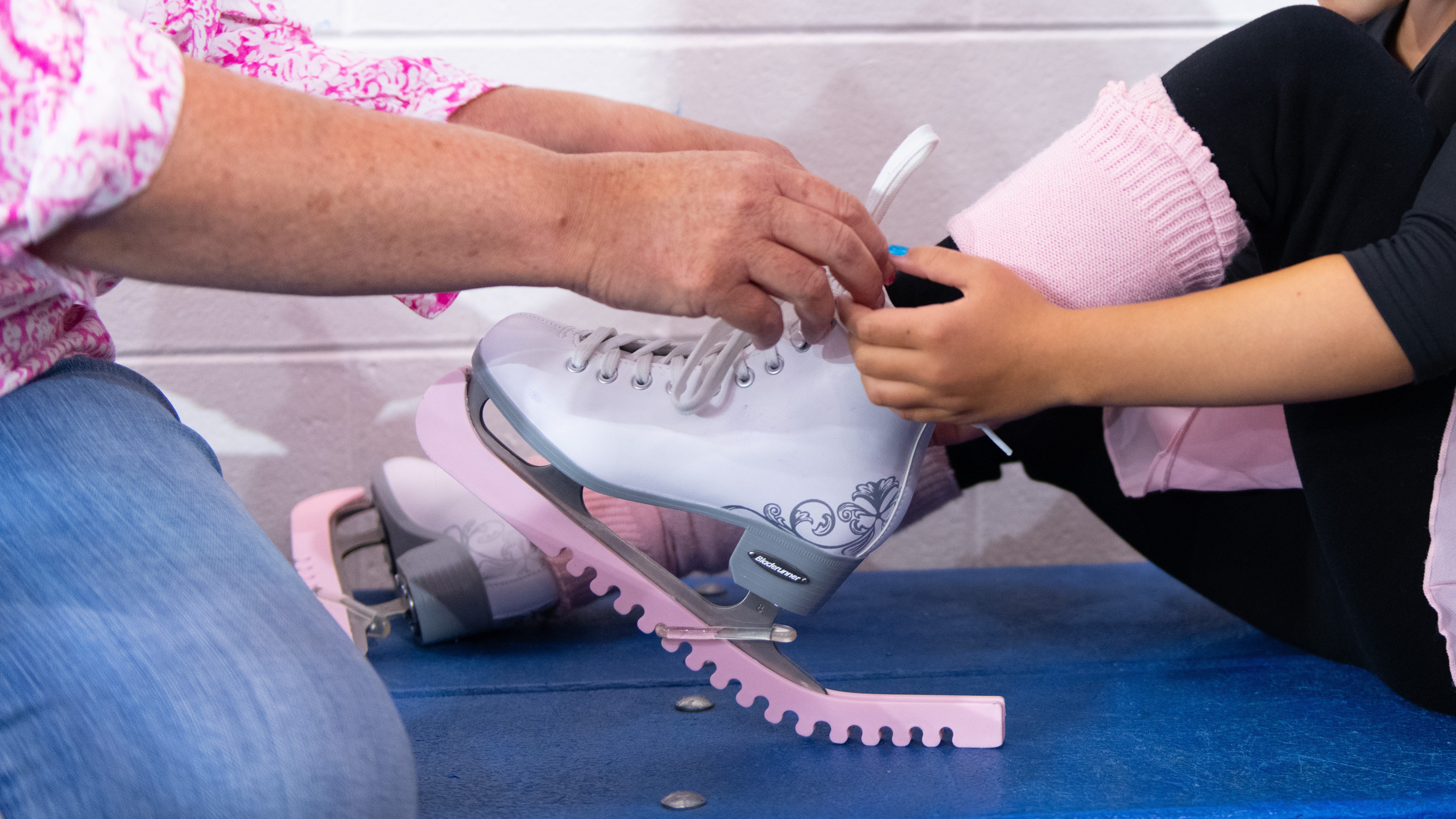May Is Mental Health Awareness Month, which is celebrated annually to help raise awareness about mental health. To continue the conversation, we asked Caroline Silby, PhD, MEd, and Lauren McHenry, PhD, CMPC, NCC – sport psychologists for U.S. Figure Skating high performance athletes – about how mental health can affect an athlete’s performance, fighting the stigma associated with mental health and ideas to help build positive self-care habits!
How does mental health affect an athlete’s performance?
Mental health is part of our overall health, which can be understood as an alignment of mind, body and spirit — and mind, body and spirit all fuel athletic performance! Mental health and performance have a synergistic relationship as each can impact the other. Imbalances amongst mind, body and spirit can impact performance, personal development and the quality of the sport experience, just as performance difficulties can impact the balance amongst mind, body and spirit. Within U.S. Figure Skating High Performance, our contracted sport psychology group holds the dual objective to support athletes’ development into happy, healthy, empowered and productive adults while also supporting their desire to have sport outcomes that match capabilities. We believe it is critical that health and personal empowerment is prioritized over performance outcomes, and that health and personal empowerment will ultimately benefit performance and longevity in sport.
Why is there a stigma around mental health, particularly in athletes? How can we fight that stigma?
It is well documented that athletes are more likely to try to hide changes related to their mental health and less likely to seek help (e.g., Lebrun et al., 2020). One important fact that contributes to this is mental health literacy, which refers to our knowledge and beliefs about mental health. Unfortunately, some athletes still report the belief that mental health challenges are viewed as a sign of weakness by themselves, their peers, coaches and the public. This stems from a lack of understanding of what a mental health diagnosis really entails. We can fight this stigma by educating ourselves about mental health — a little education can go a long way to help us see that it is possible for people to thrive in their life and sport even with a mental health diagnosis.
Further, athletes speaking up about the continuum of their mental health functioning, from thriving to surviving, has also been a game changer for mental health awareness and is smashing the stigma. We need to continue to remind athletes that awards are not given for dealing with a mental health or mental performance issue on their own! Speak up, because shame around anything cannot survive being spoken, and getting appropriate support in place can help you to thrive in your sport and life —with or without a mental health diagnosis.
Can you explain why an Olympic athlete might experience a mental health diagnosis such as depression?
It’s important to recognize that the prevalence of mental health diagnoses among athletes at any level is no different than that of the general population. While we may view Olympians as “superhuman,” they are human beings and not immune to genetic and environmental factors that contribute to mental health challenges. The extreme highs and lows that elite competition can bring, as well as habits and practices that feed the athletic quest for excellence, can sometimes drive individuals further away from being healthy productive non-athletes. In the end, these factors can be complicated by the athletes’ (and those close to the athlete’s) own shame, denial and/or lack of willingness to face the realities that can help athletes seek necessary support and/or treatment and prevent a difficult outcome. That’s where we can come in as fans, audience members and members of the skating community at every level to show respect and support for athletes no matter if they are experiencing their highest high or their lowest low.
What are the top three tips do you have for skaters struggling with their mental health?
- SPEAK IT! Tell your physician, parents, school counselor, trusted relative, coach or friend and ask them to help you access resources to support you in fueling your mind, body and spirit.
- REDEFINE SUCCESS! Reposition the definition of success from winning-at-all costs to having a healthy and empowering sport experience in which you strive to achieve athletic outcomes to match your capabilities. View your sport experience as an opportunity in time to “figure yourself out” – what makes you tick, what makes you happy, what gets you engaged and challenged, and what qualities do you possess that contribute to your resiliency and excellence. We can’t guarantee that figuring yourself out will translate to winning a skating competition, passing your next test or landing that new jump. However, we do believe it gives you the best chance to create those achievements while simultaneously enjoying the process.
- SHOW YOURSELF GRACE! Give yourself permission to accept and learn from imperfect and unexpected moments by taking time daily to note what went well, what you learned and what you want to let go of or leave behind from the day. Take a moment to show yourself respect, belief and acceptance – not just when you meet your expectations – but NO MATTER WHAT … AND EVERY DAY! Honor that you are more than your academic, athletic and social accomplishments, and place importance on the many dimensions of your personality that compose your unique way of being you!



